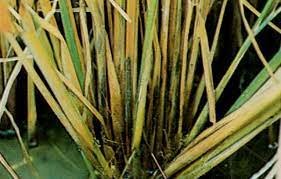Organic Farmers in Manipur have been successfully using Penicillium citrinum Thomb. to treat crop diseases caused by fungi for the past 15 years. They have been using Penicillium citrinum in combating major diseases like the rice sheath blight, rice stem rot, rice bakanae, wilt of chili, pea, tomato, french beans, sunflower, groundnut, ginger rhizome rot, papaya foot rot, and damping off of seedlings in the field.
Penicillium citrinum Thom. is discovered by Dr. Naorem Iboton Singh, a Plant Pathologist who was the Dean of Central Agricultural University in Imphal. At the moment, he is the Advisor of the Green Foundation, a Trust that helps Organic farmers in Manipur.
Rice stem rot was heavy and widespread in Manipur’s Andro, Yairipok, Thoubal, Kakching, Bishnupur, Nambol, Kamong, Pungdongbam, Lamlai, Sabungkhok, Heirok, Khongjom, Khoijuman, and Waikhong rice fields, which cover more than 1 lakh hectares.
Farmers can’t suppress the fungus with the fungicides they buy from the market. Instead, the fungicides leave behind a residue in the soil. Penicillium citrinum comes to the rescue of Organic farmers in Manipur.
Penicillium citrinum mixed with rice bran has been used by organic farmers in Manipur. One acre of field requires 250 grams of Penicillium citrinum mixed with 1 kilogram of fresh rice bran.
Farmers must drop a handful of mixed rice bran with Penicillium spores and mycellia bits on the surface of the field water. The rice bran will float and quickly spread out in all directions. It will also circle the paddy stems showing stem rot at the water level.

On the seventh day after applying P. citrinum on infected paddy plants, farmers will see the recovery of the crops from stem rot. In the same way, a handful of rice bran applied to paddy leaves with rice sheath blight symptoms makes them better in two days.
Organic farmers in Manipur can now get this miracle microbe from the Green Foundation. The Foundation sells 250 grams of P. citrinum for as little as Rs 300, which can be spread over one acre of field.
So, P.citrinum is one of the best and most cost-effective ways for Organic farmers in Manipur to stay away from harmful chemicals.
The benefit of using P.citrinum is that this is a one-time application, thus saving farmers time and money. Besides, the field is protected from harmful fungicides available in the market.
In 1998, sclerotia of Rhizoctonia solani on rice plants were found to be naturally parasitized by a Pencillium sp. This was found during surveys of plant diseases. Penicillium species were found to be P. citrinum Thom.
When Rhizoctonia solani (Rs), Scelerotium oryzae (So), and S.rolfsii (Sr) were grown on potato Dextrose agar with Rs+Pc, Sc+Pc, and Sr+Pc, their growth was stopped. There were few or no sclerotium.
When plants were treated with a mix of Pc+Rs, Pc+Sc, Pc+Sr, Pc+Fusarium, Pc+F.moniliforme, etc., these three Scelerotium-forming pathogens lost their ability to harm plants.
It was found that Dithane M-45 did not stop P. citrinum from growing, but carbendazim and Topsin M did stop it to a small degree.
Possible P. citrinum mechanisms are mycoparasitism, which happens when its enzymes attack fungal mycelia and sclerotia, and antibiosis, which happens when it makes the antibiotic citrinin and other chemicals, such as volatile compounds, that may stop pathogenic fungi and bacteria. Because it works well with fungicides, it can also be used to treat plant diseases in an integrated way.
Naorem Mohen is the Editor of Signpost News. Explore his views and opinion on X: @laimacha.
2 thoughts on “Organic farmers in Manipur using Penicillium citrinum Thom. successfully”
Comments are closed.


[…] Also Read: Organic farmers in Manipur using Penicillium citrinum Thom. successfully […]
[…] independent survey conducted by the Loumee Shinmee Apunba Lup (LOUSAL), a farmers’ organization, suggests that approximately 9,719 hectares of paddy fields in the valley region could be at risk […]